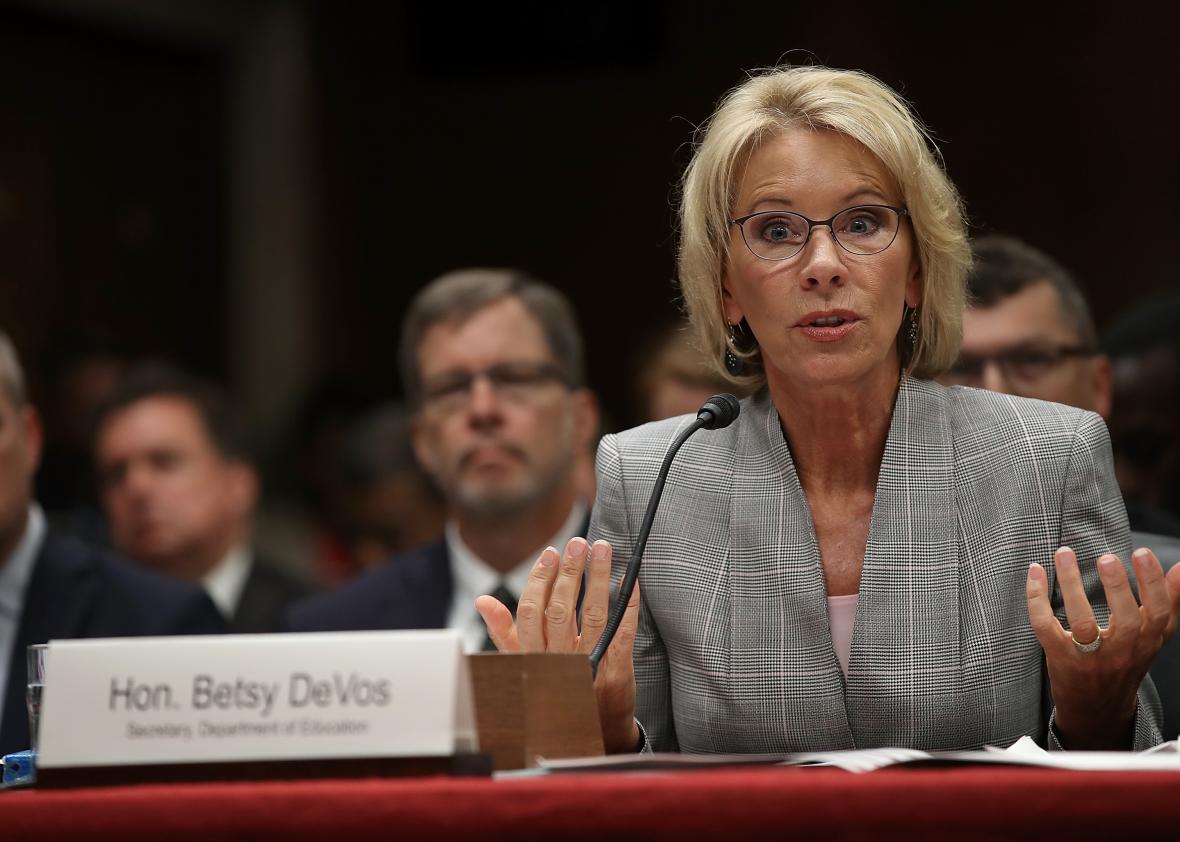COLUMN:Why make the issue of sexual assault a political debate?
Education Secretary Betsy Devos
September 12, 2017
Sexual assault and its many forms–rape, stalking, the usage of technology to hurt others and much more–must be treated as what it is: a nuisance to society. It cannot be tolerated at schools intending to mold students into future leaders.
The Rape, Abuse and Incest National Network (RAINN) estimates that, “Among undergraduate students, 23.1-percent of females and 5.4-percent of males experience rape or sexual assault through physical force, violence or incapacitation.”
These statistics highlight a problem at our universities for both boys and girls. It is a wake-up call that colleges and universities must protect their students from one of the worst experiences a person can go through.
The Obama administration was alarmed by the way colleges handled cases of sexual assault, and responded with a new guideline labeled the “Dear Colleague Letter.” That letter relied on provisions contained in Title IX of the Education Amendments of 1972 about the right to receive an education free from discrimination.
But President Donald Trump’s Education Secretary Betsy Devos raised the ire of advocates against sexual assaults on college campuses nationwide in a recent speech that has turned political. Speaking on Sept. 7 at George Mason University, Devos hinted at a revision, if not an abrogation, of existing guidelines mentioned in the “Dear Colleague Letter.”
Devos suggested Obama’s regulation creates another kind of victim—accused students aren’t given due process. The legal community has feuded over the argument of a perceived “overreach” by the federal government.
Laudable though, Devos said, “Every survivor of sexual assault must be taken seriously.” This is a consensus among victims and educators who are working towards making campuses a safe place.
On the other hand, we are moved to side with victims of sexual assault when Devos stated, “Any perceived offense can become a full-blown Title IX investigation, but if everything is harassment, then nothing is.”
The “Dear Colleague Letter” did not imply everything constitutes harassment, though; it protects students and ensures action is taken to curtail sexual assault.
At College of DuPage, we are provided with important sexual assault information and training. We feel safe. We don’t fear harassment because of what we wear or who walks next to us. Those feelings come because of the college’s implementation of a guideline that makes us safe.
There is a Title IX coordinator and resources to educate students are often sent through the school’s email system.
We won’t refuse a medical solution simply because we dislike the founder of the company that makes a medicine. It is sound to accept an alternative that works better and faster. Redefining what constitutes sexual assaults because its definition originated from a prior administration doesn’t serve any good.
In this case, it would be premature and egregious to suggest Devos meant “Let sexual assault occur” since she plans to work with the public and stakeholders. Solutions are always welcomed, but a rollback instills fear and creates unnecessary political logjams as to how we handle sexual assault.


















